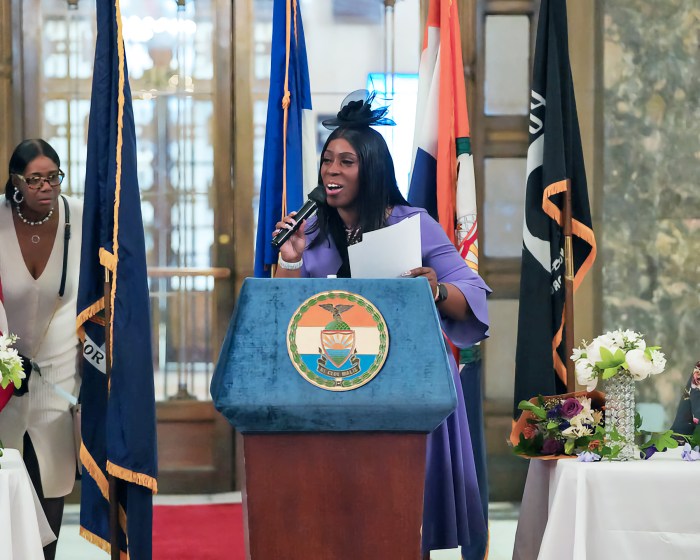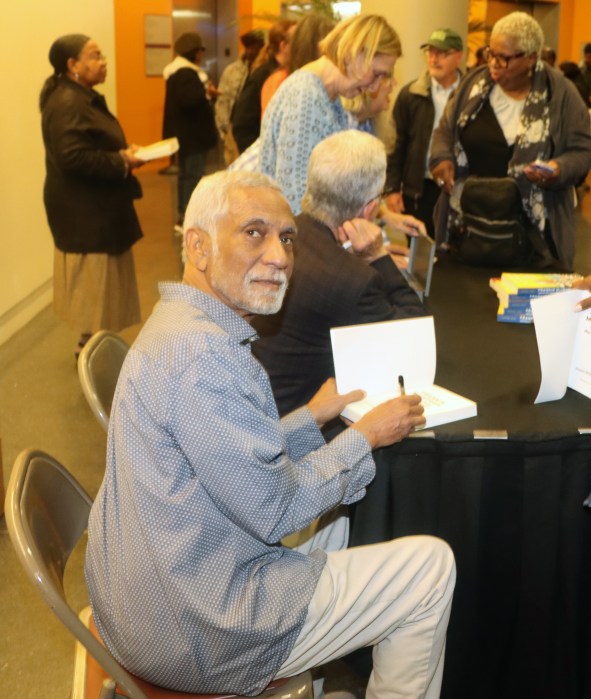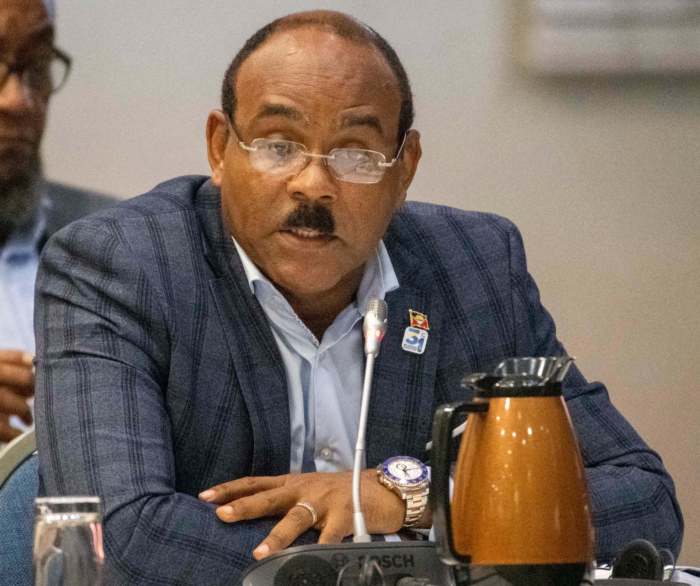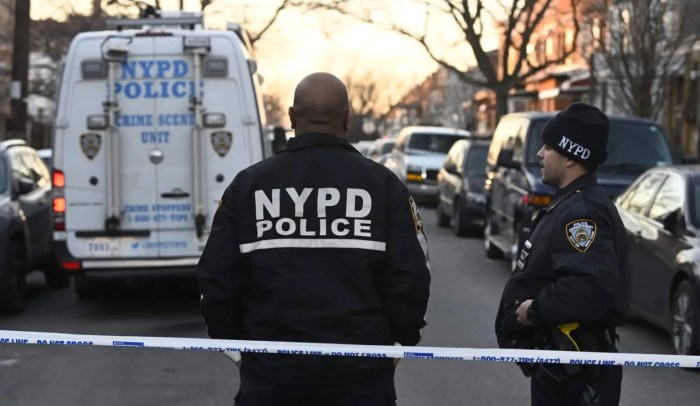Vincentian-born, Long Island judge has expressed deep concern about increased deportations to the Caribbean, stating that it is “with regret” that she has noticed a “marked increase” in the number of Caribbean youth who have become “entangled” in the criminal justice system.
Addressing a gala luncheon in Brooklyn on Sunday, marking the 32nd anniversary of St. Vincent and the Grenadines’ independence, Judge Sharon Commissiong-Gianelli, a judge in the Nassau County, Long Island, District Court, said the “stakes have become even higher” for the youth who are not US citizens.
“And the consequences are even greater because the immigration laws have become much stricter, resulting in many young people, who have been here since they were small children, being deported back to their native country, and away from their immediate family, and away from their bright future that their parents envisioned for them,” said Judge Commissiong-Gianelli, who presides over criminal cases, in delivering the feature address at the event, organized collaboratively by the umbrella Vincentian group, Council of St. Vincent and the Grenadines, U.S.A. Inc. (COSAGO), and the New York Consulate General, at Tropical Paradise Ballroom on Utica Avenue in Brooklyn.
“It is not uncommon to have immigration officials waiting outside courts or courtrooms to pick up and detain individuals in federal custody, while they prepare them for deportation,” added Gianelli, niece of Vincentian lawyers Samuel and Bertram Commissiong. “These immigration officials are tipped off by persons within law enforcement.
“And whether it’s drugs, theft, assault, or some other crime, what is at risk, once young people become a part of the criminal justice system, is not only their freedom but their entire future as well.
“That is what concerns me, that is what disturbs me, that is what I think about every time when a young person comes before me,” Judge Commissiong-Gianelli continued.
“And that is what motivates me to do what I can in my judicial capacity to change the path to one that preserves that young person’s freedom and, likewise, that young person’s future because, with all the challenges facing us, we must act to save our country,” she said. “And, in order to save our country, we must save our youth.”
Commissiong-Gianelli pointed to a recent New York State study that reveals that 89 percent of the youth who are incarcerated become repeat offenders.
“What is sadder is that many of the remaining 11 percent ended up dead,” she said. “Those are alarming statistics, indeed. And those statistics are our children, yours and mine.
“And those statistics demand that we take note,” she added. “And those statistics demand that we take action.”
Judge Commissiong-Gianelli said while there is “no magical or instant solution to such a complex matter,” one idea that is starting to take root here, and which she hopes to implement soon in her court, is based on the concept of “restorative justice.”
He said these priorities include the identification and removal of those that have broken criminal laws, threats to national security, recent border crossers, repeat violators of immigration law and immigration court fugitives.
“Smart and effective immigration enforcement relies on setting priorities for removal and executing on those priorities,” Morton said.
He said, overall, in fiscal year 2011, ICE’s Office of Enforcement and Removal Operations removed 396,906 individuals — the largest number in the agency’s history. He did not specify the exact number of Caribbean nationals deported.
Of those, Morton said nearly 55 percent or 216,698 of the people deported were convicted of felonies or misdemeanors — an 89 percent increase in the removal of criminals since fiscal year 2008.
This includes 1,119 immigrants convicted of homicide; 5,848 convicted of sexual offenses; 44,653 convicted of drug related crimes; and 35,927 convicted of driving under the influence.
Caribbean leaders have frequently attributed deportations, primarily from the U.S., for the spiraling crime wave.

























